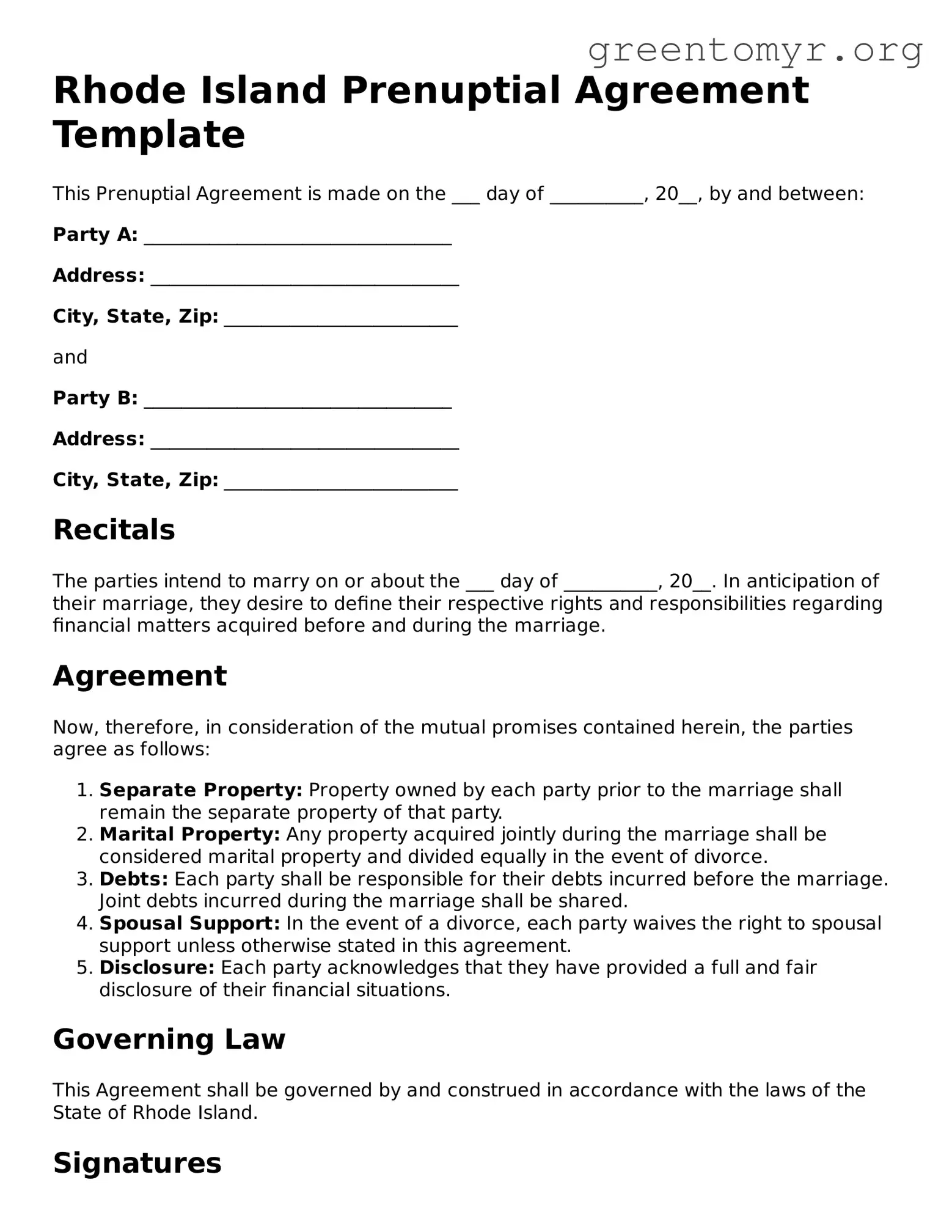Rhode Island Prenuptial Agreement Template
This Prenuptial Agreement is made on the ___ day of __________, 20__, by and between:
Party A: _________________________________
Address: _________________________________
City, State, Zip: _________________________
and
Party B: _________________________________
Address: _________________________________
City, State, Zip: _________________________
Recitals
The parties intend to marry on or about the ___ day of __________, 20__. In anticipation of their marriage, they desire to define their respective rights and responsibilities regarding financial matters acquired before and during the marriage.
Agreement
Now, therefore, in consideration of the mutual promises contained herein, the parties agree as follows:
- Separate Property: Property owned by each party prior to the marriage shall remain the separate property of that party.
- Marital Property: Any property acquired jointly during the marriage shall be considered marital property and divided equally in the event of divorce.
- Debts: Each party shall be responsible for their debts incurred before the marriage. Joint debts incurred during the marriage shall be shared.
- Spousal Support: In the event of a divorce, each party waives the right to spousal support unless otherwise stated in this agreement.
- Disclosure: Each party acknowledges that they have provided a full and fair disclosure of their financial situations.
Governing Law
This Agreement shall be governed by and construed in accordance with the laws of the State of Rhode Island.
Signatures
IN WITNESS WHEREOF, the parties have executed this Prenuptial Agreement as of the date first above written.
Party A Signature: ________________________________
Date: __________________________
Party B Signature: ________________________________
Date: __________________________
Witness Signature: ________________________________
Date: __________________________
Witness Signature: ________________________________
Date: __________________________
This template provides a clear framework for a prenuptial agreement tailored to the context of Rhode Island's laws. It emphasizes each party's rights and responsibilities while also ensuring that both parties comprehensively understand and consent to the terms laid out in the document.
